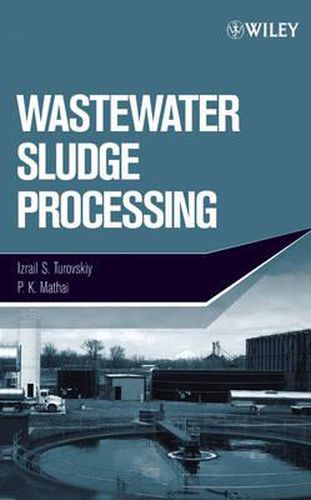Readings Newsletter
Become a Readings Member to make your shopping experience even easier.
Sign in or sign up for free!
You’re not far away from qualifying for FREE standard shipping within Australia
You’ve qualified for FREE standard shipping within Australia
The cart is loading…






Reap the benefits of sludge. The processing of wastewater sludge for use or disposal has been a continuing challenge for municipal agencies. Yet, when sludge is properly processed, the resulting nutrient-rich product - biosolids - can be a valuable resource for agriculture and other uses. Wastewater Sludge Processing brings together a wide body of knowledge from the field to examine how to effectively process sludge to reap its benefits, yet protect public health. Presented in a format useful as both a reference for practicing environmental engineers and a textbook for graduatestudents, this book discusses unit operations used for processing sludge and the available methods for final disposition of the processed product. The topics discussed include sludge quantities and characteristics, thickening and dewatering, aerobicand anaerobic digestion, alkaline stabilization, composting, thermal drying and incineration, energy consumption, and the beneficial use of biosolids. Comprehensive in its coverage, the text: describes new and emerging technologies as well as international methods; compares different types of sludge processing methods; and, explains both municipal and industrial treatment technologies. Written by authors with decades of experience in the field, Wastewater Sludge Processing is an invaluable tool for anyone planning, designing, and implementing municipal wastewater sludge management projects.
$9.00 standard shipping within Australia
FREE standard shipping within Australia for orders over $100.00
Express & International shipping calculated at checkout
Reap the benefits of sludge. The processing of wastewater sludge for use or disposal has been a continuing challenge for municipal agencies. Yet, when sludge is properly processed, the resulting nutrient-rich product - biosolids - can be a valuable resource for agriculture and other uses. Wastewater Sludge Processing brings together a wide body of knowledge from the field to examine how to effectively process sludge to reap its benefits, yet protect public health. Presented in a format useful as both a reference for practicing environmental engineers and a textbook for graduatestudents, this book discusses unit operations used for processing sludge and the available methods for final disposition of the processed product. The topics discussed include sludge quantities and characteristics, thickening and dewatering, aerobicand anaerobic digestion, alkaline stabilization, composting, thermal drying and incineration, energy consumption, and the beneficial use of biosolids. Comprehensive in its coverage, the text: describes new and emerging technologies as well as international methods; compares different types of sludge processing methods; and, explains both municipal and industrial treatment technologies. Written by authors with decades of experience in the field, Wastewater Sludge Processing is an invaluable tool for anyone planning, designing, and implementing municipal wastewater sludge management projects.